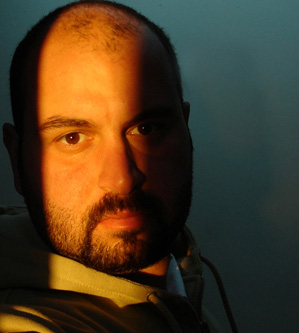RADIO PRAHA
13.02.2007 18:40 UTC] Daniela Lazarova
http://www.radio.cz/en/news/88312#2
Transcript of a news bulletin
Protest against US radar base outside government headquarters
Around 200 opponents of a US radar base in the Czech Republic held a protest outside the Office of the Government on Tuesday. They unfurled banners and erected tents, saying they were setting up a peaceful anti-radar base. The protesters said their main goal was to convince Czech politicians to let the public decide the matter freely in a national referendum. The radar base would be part of a US missile defense system located jointly in the Czech Republic and Poland.
This story was the second item on the bulletin.
This lead to the following links...
Czech supporters of U.S. radar present new initiative
March 06, 2007 | čtk
Prague - Supporters of the stationing of a U.S. radar defence base in the Czech Republic presented on Monday a new civic initiative called Pro that is preparing a public rally in support of the U.S. plans to be held in Prague centre on March 12, the organisers have announced.
Among the initiative followers are Ladislav Špaček, one of the former spokesmen for Czech president Václav Havel (in office 1989-February 2003), and artist David Černý.
Havel has repeatedly supported the building of a U.S. defence base in the Czech Republic.
Prague Post
Mayors' group combats radar; Association denounces talks on proposed base with state official
By Markéta Hulpachová
Staff Writer, The Prague Post
August 29th, 2007
Protests against the planned U.S. radar base in the Czech Republic have unified the mayors of small towns in the Brdy region.
….
The Defense Ministry currently intends to construct the radar base on the Brdy military base near Míšov, west Bohemia, about 90 kilometers (56 miles) southwest of Prague.
Markéta Hulpachová can be reached at mhulpachova@praguepost.com
The Prague Post has a very good site and a good search engine so if we decide to look at Czech reporting it might be helpful.
The following isn't from a news website but from something calling itself the Czech Republic's "official website". If it is then the report would probably be from CTK - Czeck News Agency which is a rubbish website. But it is probably a very early mention of the intent to open a US radar base in the Czech Republic. I think this report also mentions that about 200 jobs will be created by the base.
USA asks to station its radar system in Czech Jince
January 25, 2007 |
Prague - The U.S. government today addressed an official note to the Czech cabinet, asking to station its missile defence radar system in the military training grounds Jince in Central Bohemia, Prime Minister Mirek Topolánek (Civic Democrats, ODS) told.
